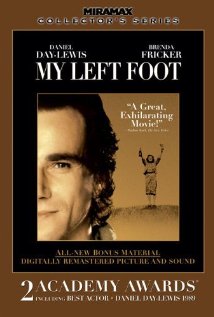by Samantha Prust
Photographs were the least responsible for my realization that my parents are human, even though the pictures of them in various stages of their separate lives would seem to provide the most evidence for this fact. I had the realization as a kid, and it was a big deal because it meant that, yes, my mom and dad had been children, just like me. Finally, we had something in common. Those photos were to me rare and almost impossible images: Mom in grade school, standing on a small hill outside a white schoolhouse, pouting, wearing a lace bonnet and holding a small, white purse; Dad in a tight-fitting suit, not pouting, but not smiling, either, standing in front of a garage door. Older, they stood on beaches, in parks, grasped hands, let them go, beat up or got beat up by siblings, rode the bus, drove a car, went to prom, graduated from high school, and went to college where they met and thus ended their lives as human beings in the eyes of the children they had. The photographs were mere props to me, planted in drawers for me to find; it was my parents' stories about their childhoods that really made me understand that they're human.
Next Time, Just Ask
When my mother was 5 years old, one of her brother's friends had a used bike that was her size for sale for five dollars. Her dad said she could buy it if she saved up the money. So she worked and slaved, put a down payment on it, and finally, was able to buy it. She had a "new" bike and couldn't wait to ride it.
Her family lived in a big house that they could get to by going down a dirt path through a field. She walked her new bike down the dirt path—because she didn't have any idea how to ride it. She said that she didn't know where her parents were during this time. She would sit on the bike propped up by a white picket fence, trying to get up the nerve to make it go. Finally, after about a week, she did make it go, and she pedaled like crazy down the road toward another friend's house. Stopping hadn't occurred to her before, but now it was an issue; she just looked for something to hit that was fairly soft. It worked.
That whole summer, she would run the bike into big bushes to stop. When crossing intersections, she remembers praying that no cars would come down the street, and somehow, she survived those first few weeks. One good method she remembers doing was to just wipe out so that she wouldn't hit something really hard. She wanted to ride the bike, but she hated being scared and having to run into things. Sometimes, before she wanted to stop, she would just slow way down and then jump off before it fell over.
She had a lot of bloody knees and noses, and gravel pitted palms, until finally, her mom asked her why she was getting hurt so much when riding her bike. Mom confessed her bike-stopping methods and her mother showed her that you push the pedals backwards to engage the brakes. My mother thought it was a miracle. She still suspects that her brother Lance knew all about how she was her crashing her bike to stop, but didn't tell her how to use the brakes. She says that her parents seemed to feel that their kids would figure everything out if they wanted to badly enough; they didn't hover or offer much advice unless directly asked.
A Lesson on Revenge
My father, age 10, and his friend Keith Kilmer were riding their bikes back from the woods one day. As they rode past the house where the bad seed kid lived, he came out and blew a bunch of beans at them through a blowgun.
So they went to the mom and pop grocery store right next to their house and bought a bag of navy beans and a cane fishing pole. When they went back home, they cut the cane pole into pieces and it made handy dandy blowguns. Grabbing their bean ammo and weapons, they hopped on their bikes and headed back up the street toward the bad seed's house.
As they rode up the street, there came the bad seed, running at them full blast with his blowgun in his mouth. My father and his friend pedaled their bikes, sporting their blowguns, mouths bulging like crazed chipmunks, and brrrraaaatttt, brrraaaatttt, pttttewwww—a barrage of beans completely pulverized the bad seed.
Later that evening my grandfather called my father into the kitchen. It seems the bad seed had a bean stuck in his ear and had to go to the hospital to have it removed. Crack! and Splinter! went the blowguns and my dad had to endure an hour-long lecture about the riskiness of propelling legumes at bodily orifices. Maybe the lesson should have been about revenge, although I'm not sure that "be careful when you get revenge because you might hurt someone" is at the top of every revenge-getter's list.
 Sheldon and Ida decided to leave the Hope Lodge.
Sheldon and Ida decided to leave the Hope Lodge.

